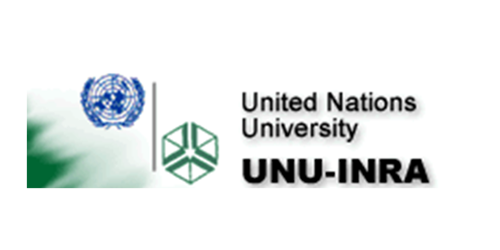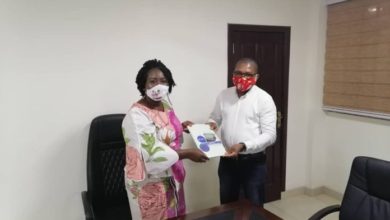UNU-INRA Holds National Validation Workshop to Review Draft Country Assessment Report On Climate…

UNU-INRA Holds National Validation Workshop to Review Draft Country Assessment Report On Climate Change Impact
A national validation workshop on a country assessment study on Ghana on the impact of climate change on agricultural trade and food security has taken place in Accra.
About 30 participants attended the workshop which brought together key stakeholders involved in climate change, agricultural trade and food security issues to review a draft assessment report on Ghana and to make recommendations for the report’s improvement.
It was organized by the United Nations University Institute for Natural Resources (UNU-INRA), in collaboration with the African Climate Policy Centre (ACPC) of the United Nations Economic Commission for Africa (UNECA).
UNU-INRA and ACPC are implementing a research project entitled: ‘Climate Change Agricultural Trade and Food Security in ECOWAS’.
The two-year, four-phase project aims at assessing whether agricultural production systems and trade policies in ECOWAS can be adjusted to alleviate the impact of climate change on food security and promote sustainable development in the region.
The outputs of the research project will be used to support the effort of ACPC in increasing the capacity of ECOWAS to be able to mainstream appropriate climate change information into policies, development plans and frameworks to respond to the current and future impacts of climate change in the agricultural sector.
As part of the first phase of the project, 13 country assessment studies have been carried out with support from In-Country Consultants (ICCs) in Benin, Burkina Faso La Cote d’Ivoire, The Gambia, Ghana, Guinea Bissau, Mali, Niger, Nigeria, Senegal and Togo.
The country assessment reports on the studies provide the required basic information to understand, in more detail, the linkages between climate change, agricultural trade and food security in ECOWAS.
It is in the light of these that national consultation workshops are being organized to review the country assessment reports.
In a presentation at the opening of the workshop, last week, Dr John Baptiste Jatoe, UNU-INRA Project Consultant, said the main objective of the country mapping was to contribute to a regional assessment and modeling climate change, agricultural trade and food security in ECOWAS.
Dr Jatoe noted that Ghana’s economy traditionally relied on the agricultural sector, characterized by uncertain weather, with smallholder agricultural production making very limited use of irrigation.
He said increased agricultural output in Ghana was mainly due to area expansion, adding that stagnant crop yields over long periods, along with rising producer prices, posed a threat to food security.
He said Ghana engaged in substantial levels of trade and relied heavily on imports-rice, fish, sugar and tomato-to meet domestic consumption needs.
He cautioned that as countries responded to the threats of climate change, the agricultural trade regime within ECOWAS and the emerging national climate adaptation plans might conflict.
Dr Jatoe said the impact of climate change included increased pressure on water, leading to a reduced potential for hydropower.
He said climate change would result in reduced agricultural yields, leading to increased poverty and food insecurity, and the loss of national revenue from cash crops like cocoa.
Furthermore, he said, climate change would also lead to increased migration, with increased pressure on urban services.
Climate change, Dr Jatoe added, would also be responsible for deteriorating human health as a result of increased incidence of diseases and reduced access to water and food, compounded by disruption to the delivery of health services-due to the flooding of health facilities and the loss of transport infrastructure.
He said climate change would severely impact on land use, leading to loss of biodiversity and soil fertility, land degradation and increased deforestation, adding that the impact on women-who are particularly vulnerable to the negative impacts of climate change- would be severe, given their responsibilities for household water, food and fuel.
Dr Jatoe said for the objectives of the UNU-INRA Project to be achieved, seven systematic pillars should be the foundation.
These pillars, he identified as good governance and coordination, capacity building, research and knowledge management, finance, international co-operation, communication and monitoring, and reporting.



